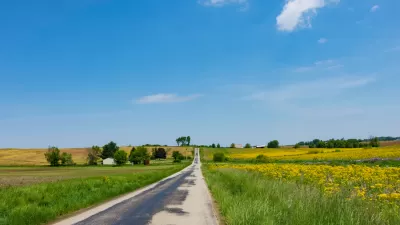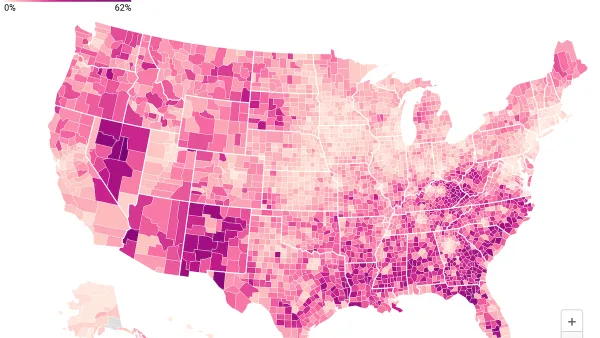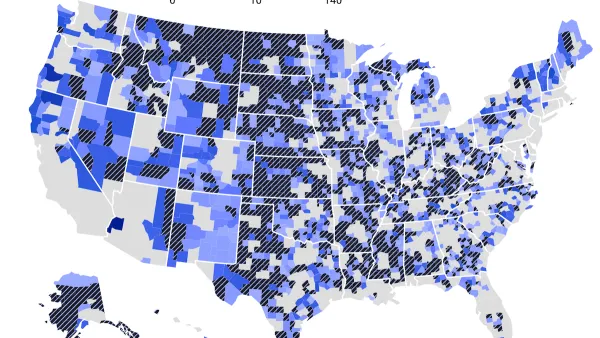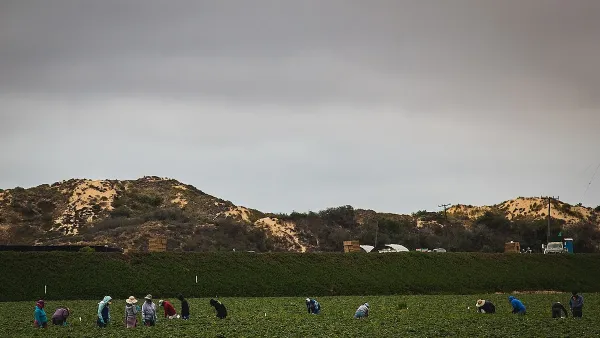Inflation is hitting rural areas particularly hard. One expert sees the possibility of rural residents reconsidering cities as a place to avoid higher costs associated with rural mobility and to make more money.

“Inflation is crippling rural America and driving some people to consider moving closer to cities in an effort to ease the financial stress,” reports Ben Abrams for MPR News.
Abrams cites Iowa State University professor Dave Peters to preset this idea. Peters recently published research on the impact of inflation on rural household expenses between June 2020 and 2022, finding inflation far outpacing income increases in the rural United States—9.2 percent to 2.6 percent, respectively.
According to Peters, rural residents feel the effect of inflation mostly due to the cost of gas and the need to travel long distances to access the resources and services of daily need.
“His analysis found it costs rural households $2,500 more a year to pay for gasoline than it did two years ago. At the same time, prices are also rising for health insurance, veterinarian care, and fuel to heat homes,” explains Abrams.
But whether that inflation pressure is enough to drive rural residents to the city is another question. While many mainstream national media outlets are pushing the narrative of downtowns and big cities searching for a solution to population loss [paywall], and many data sources are providing nuanced evidence of the scale of the pandemic-era urban exodus, Peters dares to suggest that if inflation doesn’t recede soon, rural residents will have to reconsider their lifestyles.
"There are people that I've talked to in Iowa and in Nebraska ... that are really trying to do that financial calculation," says Peters in the article. "They would love to work and get city wages, but they can't commute. It's too expensive with the gas prices. And really, the thing that's holding them back is the cost of homes."
FULL STORY: Inflation is crippling rural America and may even drive people to the cities

Planetizen Federal Action Tracker
A weekly monitor of how Trump’s orders and actions are impacting planners and planning in America.

Map: Where Senate Republicans Want to Sell Your Public Lands
For public land advocates, the Senate Republicans’ proposal to sell millions of acres of public land in the West is “the biggest fight of their careers.”

Restaurant Patios Were a Pandemic Win — Why Were They so Hard to Keep?
Social distancing requirements and changes in travel patterns prompted cities to pilot new uses for street and sidewalk space. Then it got complicated.

California Homeless Arrests, Citations Spike After Ruling
An investigation reveals that anti-homeless actions increased up to 500% after Grants Pass v. Johnson — even in cities claiming no policy change.

Albuquerque Route 66 Motels Become Affordable Housing
A $4 million city fund is incentivizing developers to breathe new life into derelict midcentury motels.

DC Area County Eliminates Bus Fares
Montgomery County joins a growing trend of making transit free.
Urban Design for Planners 1: Software Tools
This six-course series explores essential urban design concepts using open source software and equips planners with the tools they need to participate fully in the urban design process.
Planning for Universal Design
Learn the tools for implementing Universal Design in planning regulations.
Heyer Gruel & Associates PA
JM Goldson LLC
Custer County Colorado
City of Camden Redevelopment Agency
City of Astoria
Transportation Research & Education Center (TREC) at Portland State University
Camden Redevelopment Agency
City of Claremont
Municipality of Princeton (NJ)





























